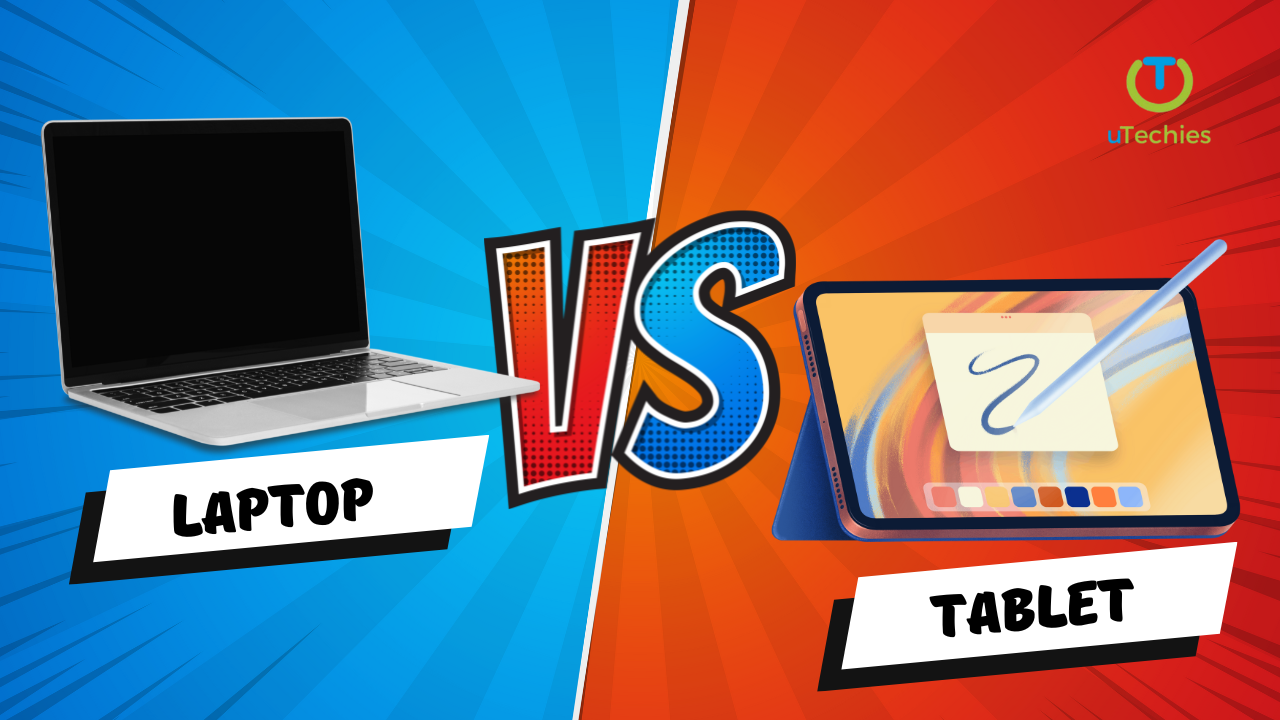Deciding between a laptop and a tablet can be challenging, as each device offers distinct benefits tailored to specific needs. This guide breaks down their differences, advantages, and drawbacks to help you make an informed decision based on your work and leisure requirements.
Key Factors to Consider
Performance
- Laptops typically outperform tablets when it comes to processing power and storage. Their advanced processors and larger storage capacities make them ideal for intensive tasks like video editing, coding, and multitasking across numerous applications.
- Tablets, while improving in performance, usually operate on mobile platforms, limiting their ability to run desktop-grade software. They are best suited for basic tasks such as browsing, media streaming, and light productivity work.
Portability
- Tablets are crafted for on-the-go convenience. With their slim design and lightweight build—usually under 1 kg—they’re easy to carry around, even for extended periods.
- Laptops, although becoming more portable with advancements in design, are still bulkier due to larger screens and more powerful hardware. Their weight typically starts at around 1.5 kg, making them less ideal for constant travel.
Battery Life
- Tablets often excel in battery life, capable of lasting an entire day on a single charge, making them excellent for uninterrupted use without frequent charging.
- Laptops, while more power-hungry due to their robust components, are steadily catching up in battery efficiency thanks to technological advancements.
Pros and Cons
Laptops
Advantages:
- Exceptional performance suitable for demanding applications and multitasking.
- Larger screens enhance productivity and ease of use.
- Full-fledged operating systems (e.g., Windows, macOS) offer compatibility with a wide range of software.
- Physical keyboards ensure a superior typing experience.
Drawbacks:
- Bulkier and heavier compared to tablets.
- Higher cost due to advanced specifications.
- Shorter battery life relative to tablets.
Tablets
Advantages:
- Extremely portable and lightweight, perfect for travel.
- Longer battery life, ensuring day-long usage.
- Touchscreen interfaces provide an intuitive user experience.
- Generally more affordable than laptops.
Drawbacks:
- Limited capability for resource-intensive tasks.
- Smaller screens can hamper productivity for detailed work.
- Lack of support for full desktop software in most cases.
Best Use Cases
Work Needs
For tasks requiring heavy typing, multitasking, or specialized software (e.g., graphic design tools or advanced spreadsheets), a laptop is the clear winner. It offers the power and versatility necessary for serious professional work.
Entertainment and Leisure
If your primary activities involve streaming videos, casual gaming, browsing, or reading, a tablet might be your best bet. Its lightweight design, intuitive interface, and high-resolution display make it a great companion for entertainment purposes.
Final Thoughts
Choosing between a laptop and a tablet ultimately depends on your priorities:
- Go for a laptop if you need robust performance and advanced functionality for work or demanding applications.
- Pick a tablet if portability, convenience, and casual use are your main considerations.
Evaluate your lifestyle, budget, and usage patterns carefully to find the device that aligns with your needs. Whether you opt for a laptop or a tablet, both can significantly enhance your productivity and leisure time.






